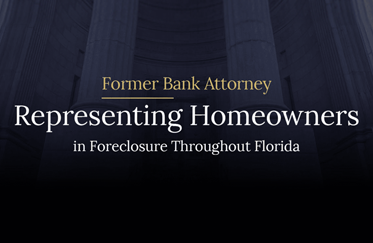I have discussed this many times, but just this week I have been contacted by two companies wanting to “partner” with any attorney to obtain Surplus Funds from either Florida Foreclosure Sales, or from Florida Tax Deed Sales. Why do I always say no when these offers are made to me? The answer is quite simple. I am here to help the former owner of the property to retrieve as much as possible of these surplus funds and I believe what many of these third-party recovery companies do is immoral. Yes, I represent the former owner for a fee, but it is far less than what these third-party recovery companies do. Many of them charge 40 percent or more for them to hire an attorney to represent them, not you.
What this means is that when you hire a third-party recovery company, you are assigning your rights to the surplus funds to them. They then take your place in the recovery of the funds. Essentially, you have no rights other than what it says in the agreement. Florida Statute 45.033(3) states, “A voluntary transfer or assignment shall be a transfer or assignment qualified under this subsection, thereby entitling the transferee or assignee to the surplus funds or a portion or percentage of the surplus funds.” This means you are completely signing over your rights to the surplus funds to them. This is the main reason I don’t work with them. My preference is always to represent the former homeowner and to help them save as much as I possibly can. In fact, when you sign over your rights to one of these companies, they will hire an attorney that you may never see or speak to.
Additionally, many of these shady third-party recovery companies will try to hide or not completely disclose how much they are making off your money. They might hide how much the Florida Foreclosure Sale Surplus Funds or Florida Tax Deed Sale Surplus Funds actually are. They may tell you that it is a low amount, knowing full well that the amount is much, much higher. Additionally, the attorneys they hire are not as well versed in the law as I am and might not be able to fight as hard as I can for your surplus funds. They simply file “boiler plate” pleadings and often don’t even look to see if any other claims are valid.
Next, there are some of these third-party surplus recovery “companies” out there that are completely fraudulent. There have been some of these companies who will retrieve the funds and then completely disappear. They then open under a new name and do it all over again with new, unsuspecting, former homeowners. I could never do this because my law practice is governed by the ethics laid down by the Florida Supreme Court and the Florida Bar. You won’t get this same guarantee from one of those third-party surplus recovery companies.
Just remember, I work for you. These other companies work for themselves because in order for them to get your Florida Foreclosure Sale Surplus or Tax Deed Sale Surplus Funds, you have to sign over your rights to them. You will never sign over your rights to me. I represent you and I will work hard to make sure you get the maximum Florida Foreclosure Surplus or Tax Deed Surplus Funds you have coming to you.
If you believe you have Florida Foreclosure Sale Surplus or Tax Deed Sale Surplus Funds coming to you from the sale of a property that you owned or a deceased member of your family owned, please don’t call one of those third-party recovery companies. Instead, give me a call for a free consultation. I will give you an honest evaluation of how much you should have coming to you. I handle Foreclosure Surplus and Tax Deed Surplus cases in every County in the State of Florida, and I don’t get paid unless you do.

